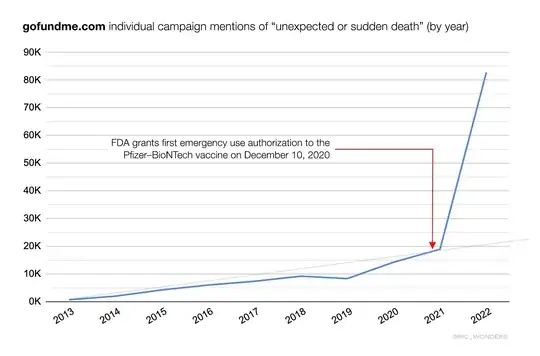The methodology used to produce these results (Google search and use the number at the top) is about as trustworthy as asking Google to produce a random number between 0 and the number of total gofundme campaigns. The latter at least guarantees you don't overcount, however.
According to Google result counts are a meaningless metric:
Google result counts are a meaningless metric. The count that you are pointing to proves nothing at all. Stop using this meaningless metric and make a proper argument based upon proper research instead.
The basic problem with the Google hit count reported in search results, particularly for phrases and searches using "AND" or "OR" operators, is that it is an estimate. It's not actually a count of anything, at all. It's the result of a calculation based solely upon the words that the query comprises, as Kevin Marks notes. Google explicitly states that it's an estimate [link broken], although it is coy about what that estimate is actually based upon. To quote one un-named Google employee, "these are all estimates, and we just haven't tried that hard to make the estimates precise". A named Google employee said much the same after this frequently given answer had been around for some years
For that broken link see instead this Google Search Appliance PDF which says the same thing.
Search Engine Land also has a good article, though some of the points they raised seem to have be made obsolete by changes to Google (e.g. adding a negative term doesn't seem to increase the number of results anymore).
Google search won't show more than 1,000 results for any search. However, among those results in the 2022 query (tweaked slightly with an additional word to show more variety in the results), I found:
None of these are relevant for what the query is trying to prove.
I'm trying to find results from people who at least tried to do "proper research". For January 1, 2020–July 31, 2020 one paper found 176,561 campaigns that mentioned Covid in some fashion (but may not have mentioned death) but it did not go past that date. It's unclear how they scraped the data, but they did scan all the pages they counted for more data, so we know that each page exists at least.
